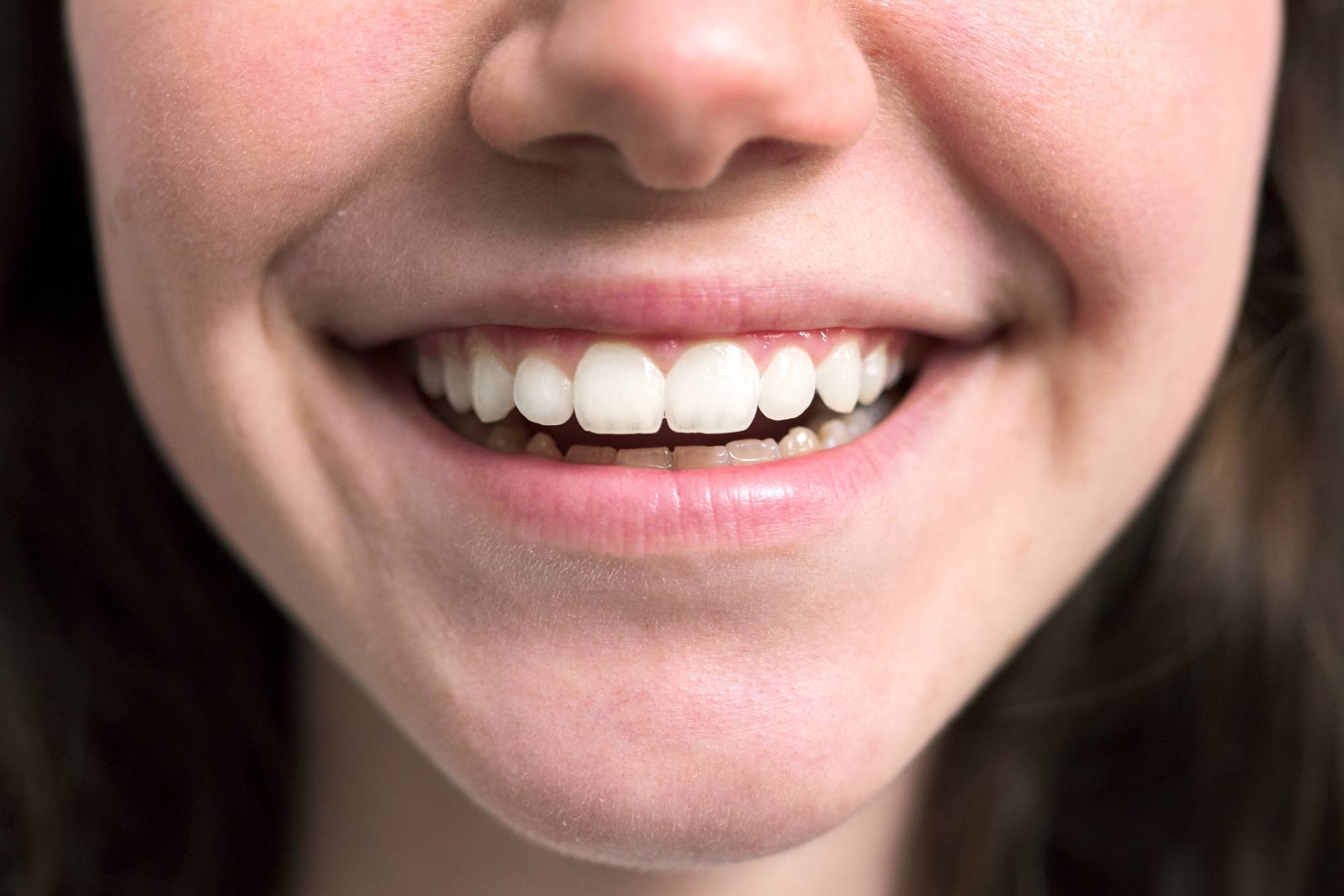A beautiful, toothy smile is a joy to behold. But when your gums start receding, it can turn your confident grin into a source of concern.
Gum recession is a subtle yet serious condition that gradually exposes the roots of your teeth, potentially leading to sensitivity and significant oral health concerns. In this post, we’ll dive into why gum recession occurs, how you can prevent it, and what treatments for receding gums are available.
Let’s dive in.
Understanding Gum Recession
Gum recession can make you more self-conscious about your smile. However, understanding the causes and taking proactive measures can help you manage or even prevent this condition.
First, let’s discuss what gum recession is all about:
What is Gum Recession?
Strong gums are essential for good dental health. They keep your teeth securely in place, protect the roots from damage, and help prevent infections.
But what if your gum tissue starts receding?
Gum recession occurs when the margin of the gum tissue surrounding the teeth wears away or pulls back, exposing more of the tooth.
Receding gums can create ‘pockets’ or gaps between the teeth and gum line, which serves as a breeding ground for harmful bacteria. If these bacteria are not addressed, they can cause significant damage to the supporting tissues and bone structures of the teeth.
Here are some common gum decay symptoms:
- You can see the roots of your teeth.
- Your teeth are sensitive.
- Your teeth feel loose.
- Your gums bleed.
- You feel pain or discomfort in your gums.
Gum recession can lead to:
- Increased tooth sensitivity.
- An increased risk of tooth loss.
- Cosmetic issues, such as an uneven gum line.
- Increased risk of tooth decay.
As gums recede, the body loses its natural defense against both bacterial penetration and trauma. Catching gum recession symptoms early can help prevent further damage and protect your oral health.
What Causes Gum Recession
Several factors can contribute to gum recession:
Poor Oral Hygiene
Not brushing or flossing your teeth regularly lets plaque build-up along your gum line and between teeth. This can quickly turn into tartar- a hard, calcified deposit that irritates your gums and may cause them to pull away.
Aggressive Brushing
You might think brushing harder gets your teeth cleaner, but it can actually harm your gums and enamel. To protect your gums, use a soft-bristled toothbrush and gentle motions when you brush.
Periodontal Disease
About 1 in 2 men and 1 in 3 women over thirty have some form of periodontal (gum) disease. Gum infection can damage the tissues and bones that hold your teeth in place. It starts with gingivitis, which is when your gums become inflamed due to bacteria.
If you don’t treat it, it may progress to periodontitis , which can cause bone loss and gum recession.
Genetics
Sometimes, the tendency to get gum disease is something you’re born with. Even if you take great care of your teeth, you might still be at risk if your family has a history of gum disease.
Tobacco Use
Smoking or using tobacco products can reduce blood flow to your gums. Besides contributing to gum recession, it can make it harder for your gums to heal.
Teeth Grinding and Clenching
Also known as bruxism, this condition involves putting a lot of pressure on your teeth and gums. Over time, this pressure can cause your gums to recede.
Misaligned Teeth or Bite Issues
If your teeth don’t line up right, it can put uneven pressure on your gums and bones and lead to gum recession.
Piercings of the Lip or Tongue
Oral piercings can rub against your gum tissue, irritating them to the point of wearing away.
Preventative Measures for Gum Recession
Fortunately, some causes of gum recession can be preventable. Here are a few practical steps you can take to maintain a healthy mouth and beautiful smile.
Maintaining Good Oral Hygiene
Good oral hygiene is the cornerstone of gum health.
Proper Brushing Techniques
Use a soft-bristled toothbrush and gentle, circular strokes to clean your teeth and gums effectively without causing damage.
Regular Flossing
Make flossing a daily habit to remove plaque and food particles between your teeth.
Use of Antibacterial Mouthwash
Incorporate an antibacterial mouthwash into your daily routine to reduce bacteria and flush out debris that could cause gum disease.
Regular Dental Check-ups
Never underestimate the importance of regular dental visits to prevent gum problems.
Routine Visits
Schedule dental check-ups every six months, or more frequently if recommended by your dentist.
Professional Cleanings
Get professional cleanings to remove tartar that can’t be brushed away at home.
Early Detection of Gum Issues
Regular visits allow your dentist to catch and address gum recession before it progresses.
Healthy Lifestyle Choices
Your lifestyle greatly influences your oral health.
Balanced Diet
Eat a diet rich in vitamins and minerals, which are crucial for maintaining healthy gums.
Avoid Tobacco Products
Quit smoking or avoid starting, as tobacco significantly increases the risk of gum disease.
Manage Stress
Stress can lead to teeth grinding; find ways to manage it through exercise, meditation, or other stress-relief techniques.
Protecting Your Gums
Additional ways to safeguard your gums include:
Using Nightguards
If you grind your teeth at night, consider using a nightguard to protect your gums from excessive pressure.
Being Cautious with Oral Piercings
If you have or are considering an oral piercing, be aware of the potential for it to irritate or damage your gum tissue.
How to Address Gum Recession
If you’re noticing early gum disease symptoms, it’s important to act quickly to restore your oral health.
Let’s walk you through a breakdown of effective gum recession therapies and adjustments you can make.
Consult with a Dental Professional
The first step to tackling gum recession is to seek professional advice. A dentist can assess the severity of your gum recession and recommend the best course of treatment.
Gum recession treatment options like scaling and root planing help clean below the gum line and remove plaque and tartar buildup. Your dentist might also prescribe antibiotics to clear up any infection that could be contributing to the problem.
Gum Grafting
For cases where the recession has progressed significantly, you may need gum recession surgery, also known as gum grafting.
Gum grafting involves taking tissue from another part of your mouth (like the roof) and attaching it to the exposed tooth root. Common types include connective tissue grafts, which use tissue from under the flap of skin on the roof of your mouth, and free gingival grafts, which take tissue directly from the roof of the mouth.
In case your condition does call for gum grafting, you’ll need to follow your dentist’s instructions carefully to ensure healing. This might include eating soft foods, avoiding brushing the grafted area directly, and possibly taking prescribed medications.
Orthodontic Treatment
Since misaligned teeth can contribute to gum recession, you may want to correct them as a proactive measure. Orthodontic treatments like braces or clear aligners can help realign your teeth and distribute biting pressure more evenly.
The Next Step
Prevention is key when it comes to gum recession. We’d recommend you take the information you’ve learned today and apply it to your daily routine. Schedule regular dental check-ups, brush, and floss properly, and make healthy lifestyle choices to keep your gums strong and your smile bright.
Worried about receding gums? Don’t wait for the problem to worsen. Schedule an appointment with Yonge Eglinton Dental today, and let our experienced team help you restore and protect your gum health. Call 416-932-2222 or visit our website to get in touch today!








